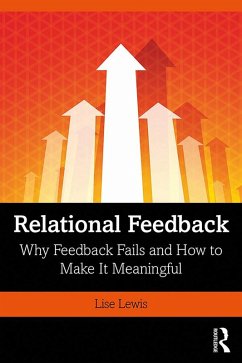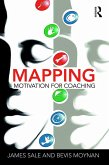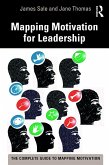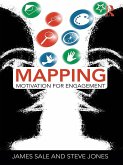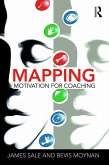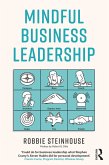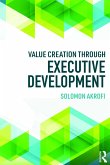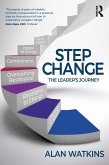55,95 €
55,95 €
inkl. MwSt.
Sofort per Download lieferbar

28 °P sammeln
55,95 €
Als Download kaufen

55,95 €
inkl. MwSt.
Sofort per Download lieferbar

28 °P sammeln
Jetzt verschenken
Alle Infos zum eBook verschenken
55,95 €
inkl. MwSt.
Sofort per Download lieferbar
Alle Infos zum eBook verschenken

28 °P sammeln
- Format: ePub
- Merkliste
- Auf die Merkliste
- Bewerten Bewerten
- Teilen
- Produkt teilen
- Produkterinnerung
- Produkterinnerung

Bitte loggen Sie sich zunächst in Ihr Kundenkonto ein oder registrieren Sie sich bei
bücher.de, um das eBook-Abo tolino select nutzen zu können.
Hier können Sie sich einloggen
Hier können Sie sich einloggen
Sie sind bereits eingeloggt. Klicken Sie auf 2. tolino select Abo, um fortzufahren.

Bitte loggen Sie sich zunächst in Ihr Kundenkonto ein oder registrieren Sie sich bei bücher.de, um das eBook-Abo tolino select nutzen zu können.
This book offers a new way of engaging in authentic feedback and focuses on relationships to improve the reputation, providing examples of existing good practice. It will appeal to those seeking an innovative approach to performance management and who welcome a reprieve from the relentless pursuit of a universal feedback tool.
- Geräte: eReader
- mit Kopierschutz
- eBook Hilfe
Andere Kunden interessierten sich auch für
![Mapping Motivation for Coaching (eBook, ePUB) Mapping Motivation for Coaching (eBook, ePUB)]() James SaleMapping Motivation for Coaching (eBook, ePUB)34,95 €
James SaleMapping Motivation for Coaching (eBook, ePUB)34,95 €![Mapping Motivation for Leadership (eBook, ePUB) Mapping Motivation for Leadership (eBook, ePUB)]() James SaleMapping Motivation for Leadership (eBook, ePUB)34,95 €
James SaleMapping Motivation for Leadership (eBook, ePUB)34,95 €![Mapping Motivation for Engagement (eBook, ePUB) Mapping Motivation for Engagement (eBook, ePUB)]() James SaleMapping Motivation for Engagement (eBook, ePUB)34,95 €
James SaleMapping Motivation for Engagement (eBook, ePUB)34,95 €![Mapping Motivation for Coaching (eBook, PDF) Mapping Motivation for Coaching (eBook, PDF)]() James SaleMapping Motivation for Coaching (eBook, PDF)34,95 €
James SaleMapping Motivation for Coaching (eBook, PDF)34,95 €![Mindful Business Leadership (eBook, ePUB) Mindful Business Leadership (eBook, ePUB)]() Robbie SteinhouseMindful Business Leadership (eBook, ePUB)24,95 €
Robbie SteinhouseMindful Business Leadership (eBook, ePUB)24,95 €![Value Creation through Executive Development (eBook, ePUB) Value Creation through Executive Development (eBook, ePUB)]() Solomon AkrofiValue Creation through Executive Development (eBook, ePUB)34,95 €
Solomon AkrofiValue Creation through Executive Development (eBook, ePUB)34,95 €![Step Change (eBook, ePUB) Step Change (eBook, ePUB)]() Alan WatkinsStep Change (eBook, ePUB)34,95 €
Alan WatkinsStep Change (eBook, ePUB)34,95 €-
-
-
This book offers a new way of engaging in authentic feedback and focuses on relationships to improve the reputation, providing examples of existing good practice. It will appeal to those seeking an innovative approach to performance management and who welcome a reprieve from the relentless pursuit of a universal feedback tool.
Dieser Download kann aus rechtlichen Gründen nur mit Rechnungsadresse in A, B, BG, CY, CZ, D, DK, EW, E, FIN, F, GR, HR, H, IRL, I, LT, L, LR, M, NL, PL, P, R, S, SLO, SK ausgeliefert werden.
Produktdetails
- Produktdetails
- Verlag: Taylor & Francis eBooks
- Seitenzahl: 244
- Erscheinungstermin: 24. Januar 2020
- Englisch
- ISBN-13: 9781351663267
- Artikelnr.: 58580214
- Verlag: Taylor & Francis eBooks
- Seitenzahl: 244
- Erscheinungstermin: 24. Januar 2020
- Englisch
- ISBN-13: 9781351663267
- Artikelnr.: 58580214
- Herstellerkennzeichnung Die Herstellerinformationen sind derzeit nicht verfügbar.
Lise Lewis is the founder of Bluesky International and an EMCC Global Special Ambassador. She is also an EIA Master Coach, ESIA Coach Supervisor, provider of global coach and coach supervisor training virtually and in organisations, as well as a researcher and author contributing to Coaching Supervision: Advancing Practice, Changing Landscapes and 'CIPD Coaching Toolkit'.
Acknowledgements
Foreword
Author Foreword
Introduction
1 What perceptions exist about Feedback
Definitions of Feedback
Willingness to engage in Feedback - the psychological perspective
The Effectiveness of Feedback - for both the giver and receiver
2 Why Feedback and Whose Responsibility is it? The business case for Feedback
The leader manager's perspective
The people professional's perspective
The team's perspective
The coaching mentoring practitioner's perspective
The individual employee's perspective
3 Current practices in Feedback Exchange
Business performance improvement tools: appraisal systems
competence frameworks and self-assessment
Proprietary tools: Psychometrics
Popular feedback techniques
4 The Importance of Relationship and How it Influences Engagement in Feedback
The importance of 'being relational'
Types of relationship and how these impact on our view of Feedback
The dynamics impacting on relationship
Power in relationships
The cultural perspective
The common features of productive relationships
Creating productive relationships
5 Part ONE of The WAY Relational Framework(c): WHAT needs preparing to establish relationships that stimulate constructive conversations:
Theme 1: Self-Management: emotional state
level of confidence and compassion
Theme 2: Readiness for Feedback: assessing receptivity and potential reaction to feedback
6 Part TWO of The WAY Relational Framework(c): ACTIVE engagement in co-creating generative conversations through adopting relational behaviours: Theme 3: Objectivity: conscious bias
unconscious bias
Theme 4: Mindfulness
Theme 5: Presence: flow and breaking flow
Theme 6: Timing of Feedback
7 Part THREE of The WAY Relational Framework(c): YOU both noticing and reacting to what emerges and impacts on sustaining the quality of the relationship
Theme 7: Physicality
Theme 8: Emotional State
Theme 9: Intuition
Theme 10: Metaphysical
8 How Artificial Intelligence (AI) may impact on the future of Feedback
Bibliography
Index
Foreword
Author Foreword
Introduction
1 What perceptions exist about Feedback
Definitions of Feedback
Willingness to engage in Feedback - the psychological perspective
The Effectiveness of Feedback - for both the giver and receiver
2 Why Feedback and Whose Responsibility is it? The business case for Feedback
The leader manager's perspective
The people professional's perspective
The team's perspective
The coaching mentoring practitioner's perspective
The individual employee's perspective
3 Current practices in Feedback Exchange
Business performance improvement tools: appraisal systems
competence frameworks and self-assessment
Proprietary tools: Psychometrics
Popular feedback techniques
4 The Importance of Relationship and How it Influences Engagement in Feedback
The importance of 'being relational'
Types of relationship and how these impact on our view of Feedback
The dynamics impacting on relationship
Power in relationships
The cultural perspective
The common features of productive relationships
Creating productive relationships
5 Part ONE of The WAY Relational Framework(c): WHAT needs preparing to establish relationships that stimulate constructive conversations:
Theme 1: Self-Management: emotional state
level of confidence and compassion
Theme 2: Readiness for Feedback: assessing receptivity and potential reaction to feedback
6 Part TWO of The WAY Relational Framework(c): ACTIVE engagement in co-creating generative conversations through adopting relational behaviours: Theme 3: Objectivity: conscious bias
unconscious bias
Theme 4: Mindfulness
Theme 5: Presence: flow and breaking flow
Theme 6: Timing of Feedback
7 Part THREE of The WAY Relational Framework(c): YOU both noticing and reacting to what emerges and impacts on sustaining the quality of the relationship
Theme 7: Physicality
Theme 8: Emotional State
Theme 9: Intuition
Theme 10: Metaphysical
8 How Artificial Intelligence (AI) may impact on the future of Feedback
Bibliography
Index
Acknowledgements
Foreword
Author Foreword
Introduction
1 What perceptions exist about Feedback
Definitions of Feedback
Willingness to engage in Feedback - the psychological perspective
The Effectiveness of Feedback - for both the giver and receiver
2 Why Feedback and Whose Responsibility is it? The business case for Feedback
The leader manager's perspective
The people professional's perspective
The team's perspective
The coaching mentoring practitioner's perspective
The individual employee's perspective
3 Current practices in Feedback Exchange
Business performance improvement tools: appraisal systems
competence frameworks and self-assessment
Proprietary tools: Psychometrics
Popular feedback techniques
4 The Importance of Relationship and How it Influences Engagement in Feedback
The importance of 'being relational'
Types of relationship and how these impact on our view of Feedback
The dynamics impacting on relationship
Power in relationships
The cultural perspective
The common features of productive relationships
Creating productive relationships
5 Part ONE of The WAY Relational Framework(c): WHAT needs preparing to establish relationships that stimulate constructive conversations:
Theme 1: Self-Management: emotional state
level of confidence and compassion
Theme 2: Readiness for Feedback: assessing receptivity and potential reaction to feedback
6 Part TWO of The WAY Relational Framework(c): ACTIVE engagement in co-creating generative conversations through adopting relational behaviours: Theme 3: Objectivity: conscious bias
unconscious bias
Theme 4: Mindfulness
Theme 5: Presence: flow and breaking flow
Theme 6: Timing of Feedback
7 Part THREE of The WAY Relational Framework(c): YOU both noticing and reacting to what emerges and impacts on sustaining the quality of the relationship
Theme 7: Physicality
Theme 8: Emotional State
Theme 9: Intuition
Theme 10: Metaphysical
8 How Artificial Intelligence (AI) may impact on the future of Feedback
Bibliography
Index
Foreword
Author Foreword
Introduction
1 What perceptions exist about Feedback
Definitions of Feedback
Willingness to engage in Feedback - the psychological perspective
The Effectiveness of Feedback - for both the giver and receiver
2 Why Feedback and Whose Responsibility is it? The business case for Feedback
The leader manager's perspective
The people professional's perspective
The team's perspective
The coaching mentoring practitioner's perspective
The individual employee's perspective
3 Current practices in Feedback Exchange
Business performance improvement tools: appraisal systems
competence frameworks and self-assessment
Proprietary tools: Psychometrics
Popular feedback techniques
4 The Importance of Relationship and How it Influences Engagement in Feedback
The importance of 'being relational'
Types of relationship and how these impact on our view of Feedback
The dynamics impacting on relationship
Power in relationships
The cultural perspective
The common features of productive relationships
Creating productive relationships
5 Part ONE of The WAY Relational Framework(c): WHAT needs preparing to establish relationships that stimulate constructive conversations:
Theme 1: Self-Management: emotional state
level of confidence and compassion
Theme 2: Readiness for Feedback: assessing receptivity and potential reaction to feedback
6 Part TWO of The WAY Relational Framework(c): ACTIVE engagement in co-creating generative conversations through adopting relational behaviours: Theme 3: Objectivity: conscious bias
unconscious bias
Theme 4: Mindfulness
Theme 5: Presence: flow and breaking flow
Theme 6: Timing of Feedback
7 Part THREE of The WAY Relational Framework(c): YOU both noticing and reacting to what emerges and impacts on sustaining the quality of the relationship
Theme 7: Physicality
Theme 8: Emotional State
Theme 9: Intuition
Theme 10: Metaphysical
8 How Artificial Intelligence (AI) may impact on the future of Feedback
Bibliography
Index
